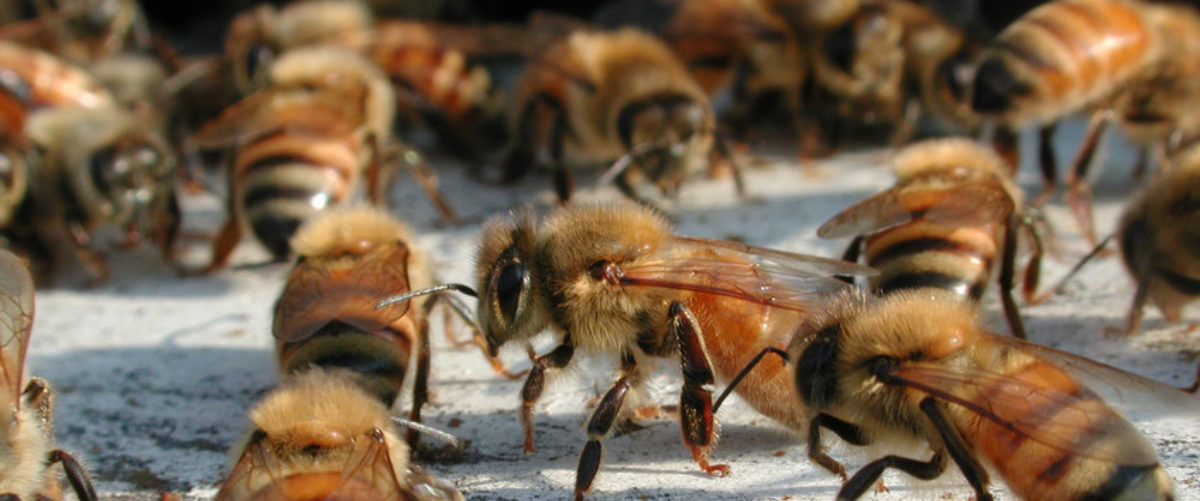Association with apiculture: Researcher, Extension specialist, State apiarist
Expertise: Pollinator health, disease ecology, ecotoxicology, Training beekeepers, especially in honey bee health, Supervision and management
Please describe the policy needs in your state:Good question. I think there’s a policy need for habitat in NY right now. A couple examples: development of utility-scale solar farms is happening at a break-neck pace right now, but there are no policies for how to make the land friendly for pollinators. This seems like a wasted opportunity since most of the land at large solar sites is seeded with grass and mowed to essentially make a giant lawn. Another example: many roadsides and interstate medians are mowed to such an extent than no wildflowers occur. In some cases, this is needed for visibility and safety (e.g. deer that may hide in brush and jump out in front of cars). But in most cases, the mowing is excessive and does not improve visibility or safety. Improving the precision of vegetation management via guidelines and policies could create a fairly large amount of habitat for bees.
Mandatory beekeeper registration just passed in NY last month. This was a big need to understand the beekeeping industry here, and I imagine it will be helpful for beekeepers, Ag and Markets, and Cornell. I’ll have to think about other policy needs next.
Please describe the programming needs in your state. The biggest barrier for beekeepers to implement BMPs is time and labor. It’s difficult for them to find, manage, and retain good labor. I’ve been thinking about how to address this as an extension associate for a while… I don’t have a clear answer yet, but perhaps a training program (in English and Spanish) for commercial beekeeping workers or resources for hiring and managing labor would really help beekeepers who experience this issue.
We need a larger workforce.
Please describe the research needs in your state. Continuing to develop BMPs for managing Varroa, overwintering in cold climates, and for mitigating pesticides
Describe ongoing happenings in your state (policy, programming and/or research) As far as Cornell Extension, we have a NYS Beekeeper Tech Team, the Cornell University Master Beekeeping Program, and are launching a Beekeeping Essentials course this summer. Working with New England on Lunch and Learn series- Tech Team – Newly passed beekeeper registration
What do you feel are the most pressing issues in the mid-Atlantic region? Several commercial beekeepers are thriving in NYS, but I’ve seen this recurring problem with some of the smaller commercial beekeepers. It’s a pressing issue because these beekeepers can get caught in a loop of high winter losses year after year. Many beekeepers struggle to appropriately manage their colonies due to a lack of time or labor. The following spring, they split dramatically, make smaller honey crops, and struggle with management again because of how many hives they have. Mismanaged colonies die overwinter and beekeepers can get stuck in a loop of “putting out fires” during the season instead of proactively managing their bees. When their losses are unsustainable, many look for ways to save money. One of the ways they may do this is by using off label treatments (most commercial beekeepers use off label treatment in NY). Sometimes these treatments work well and other times they don’t. Helping beekeepers break this cycle so that they can be profitable and sustainable is important.
Better funding for Apiary Inspection and honey bee research.
New York State is extensively equipped for research in pollinator health, disease ecology, ecotoxicology, and for training beekeepers in proper management and bee health through university and extension programs. The providers of these beekeeper education programs include Cornell Extension, Cornell Master Beekeeper program, NYS Beekeeper Tech Team, and a New England cooperative.
- Pesticide testing in our core facility: https://blogs.cornell.edu/ccecf/
- Pesticide decision-making guides to protect pollinators: https://cals.cornell.edu/pollinator-network/conservation/pollinator-protection-guides
- Comprehensive cost-benefit analysis for neonicotinoid insecticides: https://cornell.app.box.com/v/2020-neonicotinoid-report
- Master Beekeeping Program & Beekeeping Essentials programs: https://cals.cornell.edu/pollinator-network/beekeeping/courses-certifications
- NYS Beekeeper Tech Team: https://cals.cornell.edu/pollinator-network/nys-beekeeper-tech-team
- Veterinarian contacts and resources for beekeepers: https://cals.cornell.edu/pollinator-network/beekeeping/honey-bee-veterinarians
An apiary registration policy recently (2022) passed in New York. This is an exciting change, anticipated to benefit beekeepers, agriculture, markets, and research. MAAREC representatives for New York are Joan Mahoney, NY Dept of Ag & Mkts Apiculturist; Ellen Topitzhofer, Cornell Sr. Honey Bee Extension Associate; Scott McArt, Cornell Assistant Professor of Pollinator Health.
